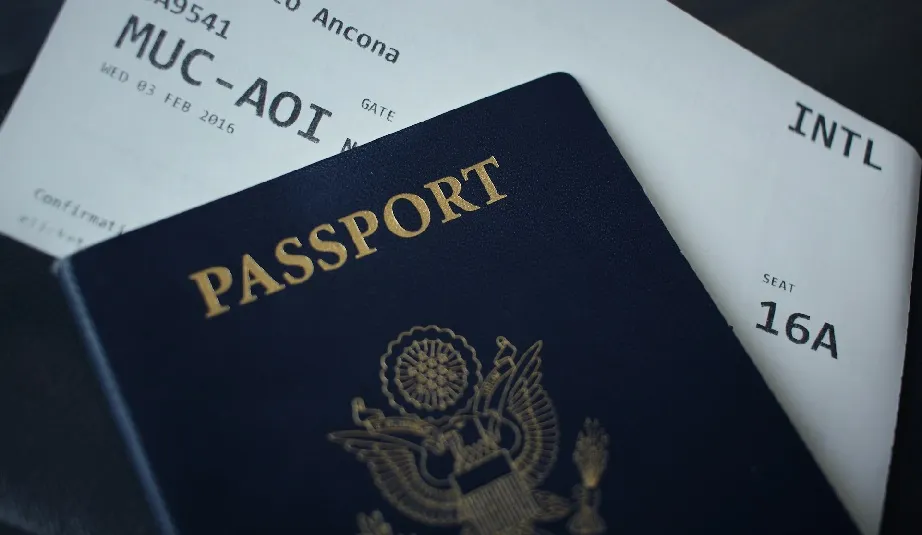How to Register at a Town Hall (Certificado De Empadronamiento)
Whilst many Brits and other foreign nationals migrate to Spain each year to take advantage of its sunny weather and beautiful coastlines, the legal process behind the move can be lengthy and complicated. They might need to obtain several documents and go through a thorough registration process in order to get residency. Once settled in Spain, applicants must also apply for a certificado de empadronamiento.
For more information regarding the registration process, including one-to-one advice from an immigration specialist about what to do and where to go, call IAS on (+44) 333 4149244 or contact us online.
Read our 1001 reviews
What is a Padron Certificate (Certificado De Empadronamiento)?
A certificado de empadronamiento, or a Padron certificate, is a legal document that forms part of the registration process for foreign nationals moving to Spain. In addition to being granted a visa, a TIE, and registering on the central register of foreign nationals, all those planning to stay in Spain for 3 months or more have to register their residency on the padron municipal (municipal register) at their local town hall.
By law, everyone who lives in Spain (including nationals) must obtain a certificado de empadronamiento. The official document issued by the Spanish government confirms personal information such as a registered address and the details of all those living in the household. The town hall keeps the registration records as proof of who lives in that specific town and at what address.
The process of obtaining this certificate is relatively simple; however, it must be completed each time a person moves address in Spain regardless of age or nationality. Both adults and children moving to Spain must comply with the town hall registration requirements in line with the law set out by the Spanish government.

Who Can Register?
Anyone over the age of 18 can register themselves and the members of their household (such as their spouse and children) at their local town hall. Under 18’s or those that have limited legal capacities can only register if they have professional legal representation.
Property ownership is not required so renters and those living with others are still able to register, however, it is worth noting that residents cannot be registered at more than one address on the padron (empadronado), even if they split their time between two households.

Why Must I Register at the Town Hall in Spain?
It is the law in Spain to register on the census – the Spanish government requires all residents to complete their registration and obtain this document as soon as they move into a new address. UK nationals who choose not to comply risk breaking the law and the terms of their visa for which there could be severe consequences.
It is of the utmost importance to obtain a certificado de empadronamiento as soon as possible once settled in Spain for various reasons. These include the following:
- It enables holders to undertake various procedures, such as family reunification.
- It enables UK nationals to use public services such as:
- Spain’s national health system (Sistema Nacional de Salud or SNS).
- Public schools.
- It enables those resident in Spain to receive grants and subsidies from the Spanish government such as:
- tax reductions.
- income-related benefits and social care.
- discounted travel (if living on a Spanish island).
- It allows the right to vote in elections.
- It enables holders to register a car with a Spanish number plate.
How Do I Register and Obtain a Certificate?
Overview
There are three different ways to register and obtain a certificado de empadronamiento once resident in Spain. The way to apply may vary depending on the jurisdiction in which the applicant lives but most give the applicant three options. They are as follows:
- In-person at the local town hall.
- Online via the internet.
- By telephone.
Registering In-person at the Town Hall
To register in person, new residents must first locate their local town hall and contact them to book a face-to-face appointment. They must then attend their appointment with all the requested documentation to register. All valid documents must be up-to-date in order to be accepted by the registrar (usually dated within the last three months).
The authorities will register the new resident on the same day, however, on occasion, some applicants will have to return to the town hall on a different day in order to collect their certificate. It is worth noting that some town halls (such as Barcelona) charge a small application fee (for example, 1.20 euros) for face-to-face appointments.
Registering Online
It is possible to register for a certificado empadronamiento online. The process is relatively simple and entirely free. First, applicants fill out a short online form which includes their home address details, then, the receivers will send out a full application form to the applicant’s home address.
The applicant then has 30 days to complete and return the form along with all the requested documentation. Again, all documents must be up-to-date (usually dated within the last three months) in order to be valid. Once complete and processed, the authorities will then send out the volante padronal (registration document) through the post to the applicant’s home address.
Registering by Telephone
The process to apply via telephone is very similar to registering online. The only difference is that residents call a specific telephone number (010) to request an application pack. The application forms will then be sent to the applicant’s home address for them to complete and return within 30 days, alongside the requested documentation. Once returned and processed, the applicant will receive their certificate through the post at their home address.
What Documents Do I Need to Register?
In order for an application to be processed, each applicant must provide legal documents that prove their identity and residency. For example, all applicants should provide a valid passport as proof of I.D. Examples of documents to prove residency are:
- A NIE (numero de identidad de extranjero) or residence certificate/card.
- The deeds to an owned property or rental contract.
- A recent utility bill in the applicant’s name.
- Proof of payment of municipal taxes.
What If I Change My Address Whilst Living in Spain?
It is important to make sure that a padron certificate is up-to-date and contains the correct details. Each time a person moves to a new address in Spain they must update their certificate to prove their new address. There are different procedures for different changes, for example:
- If the applicant is moving house in the same municipality they should make an appointment at their local town hall to change their details by requesting ‘cambio de domicilio’.
- If the applicant is moving to an address in a different municipality they should register (Alta) at their new local town hall.
- If the applicant decides to leave Spain entirely, then they should de-register at what was their local town hall by requesting ‘Baja por residencia’.
What If I Need More than One Copy of My Certificate?
It is possible to get duplicate certificates, in fact, there are times when duplicates are needed for administrative purposes in Spain. For example, to get married or enrol children in school. Often it is a requirement that the certificate is issued within the previous 3 months of its presentation in order to be accepted.
Duplicates are available from the town hall or online, however, further information on how to obtain duplicates can be accessed from the relevant local authorities.
Do I Need to Renew My Certificate?
In order to remain registered, residents must renew their certificate every two or five years. The amount of time varies depending on what other documents the applicant already has. For example, if the applicant has a green paper residence certificate or the TIE then the town hall will contact them every five years.
For residents that do not have this documentation, the town hall will contact them every 2 years to renew their certificate. All applicants must provide up-to-date documents in order for them to be valid and accepted by the registrar. It is worth remembering that it is possible for a resident to check on their padron status at any time by contacting their local town hall.
How Can IAS Help?
Many Brits flock to Spain each year, and often, after falling in love with the idyllic beaches and vivid nightlife, moving there permanently becomes their dream venture. However, UK nationals looking forward to a new life in the sun are sometimes put off by the legal process of migrating to Spain permanently. It can seem boring, complicated and often quite daunting.
IAS can help applicants obtain all of the required documents easily and efficiently by providing accurate up-to-date advice and information. Our team of legal immigration experts can guide you through the whole registration process, from start to finish, helping you gain a certificado empadronamiento.
Even once you are resident in Spain, IAS can still provide legal advice and guidance ensuring you obtain all the required documents needed for your new life abroad.
For more information on the services we offer and how we can help make your Spanish dream a reality, call us today on (+44) 333 4149244 or contact us online.
Table of Contents
Table of Contents will appear here.Table of Contents
Table of Contents will appear here.Legal Disclaimer
The information provided is for general informational purposes only and does not constitute legal advice. While we make every effort to ensure accuracy, the law may change, and the information may not reflect the most current legal developments. No warranty is given regarding the accuracy or completeness of the information, and we do not accept liability in such cases. We recommend consulting with a qualified lawyer at Immigration Advice Service before making any decisions based on the content provided.















